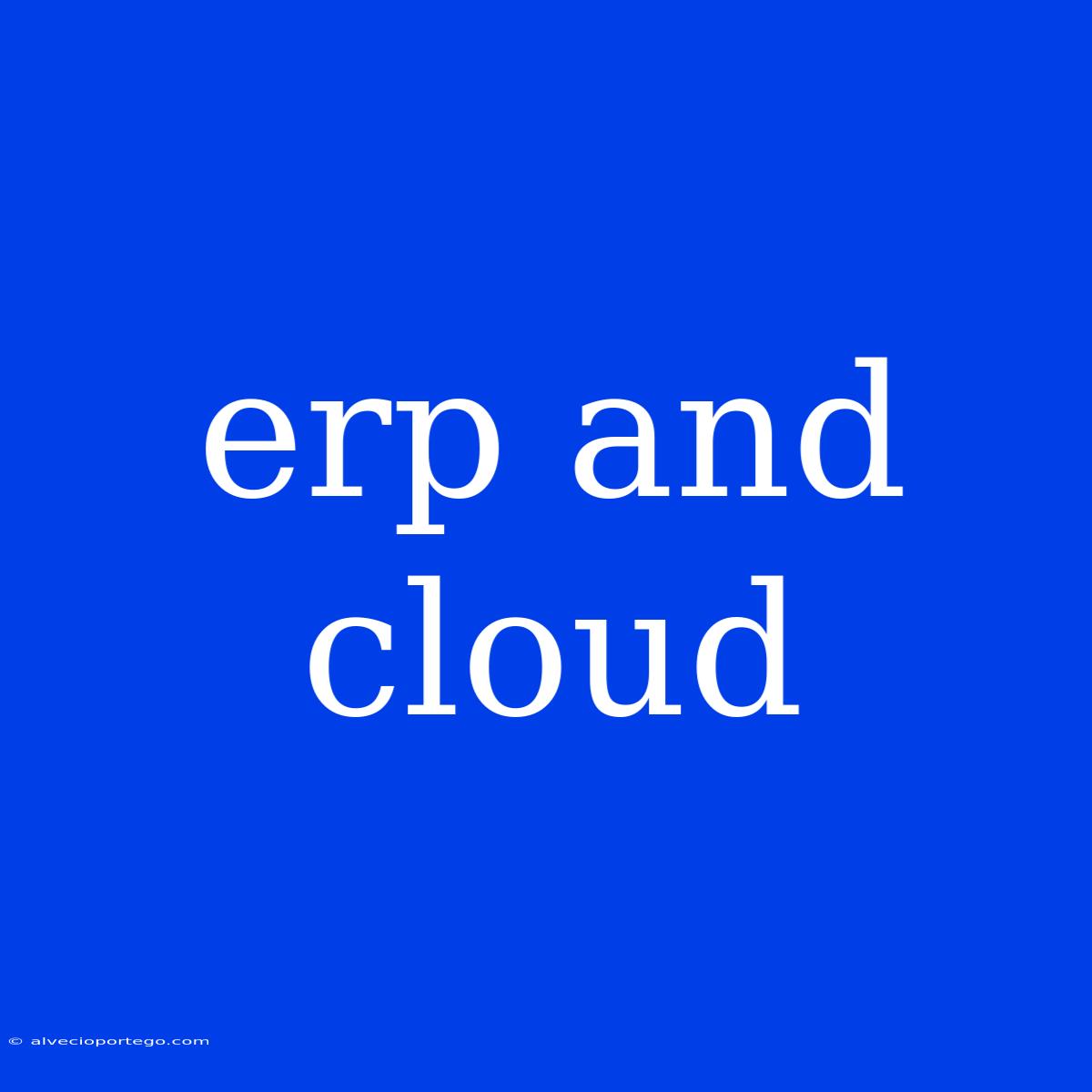The Power of the Cloud: How ERP Systems Are Evolving
Enterprise Resource Planning (ERP) systems have become indispensable for businesses of all sizes, streamlining operations and centralizing data. The emergence of cloud computing has further revolutionized ERP, offering unparalleled flexibility, scalability, and cost-efficiency. This article explores the transformative impact of cloud on ERP systems and how businesses can leverage this powerful combination.
What is Cloud ERP?
Cloud ERP refers to ERP systems hosted and managed on a network of remote servers accessible through the internet. This means businesses can access their ERP data and applications anytime, anywhere, using any device with an internet connection.
Advantages of Cloud ERP:
1. Cost-Effectiveness:
- Eliminates the need for expensive hardware, software licenses, and IT infrastructure investments.
- Pay-as-you-go models provide greater financial flexibility.
2. Enhanced Scalability:
- Easily adjust resources based on fluctuating business needs.
- Seamlessly accommodate growth without significant infrastructure changes.
3. Improved Accessibility:
- Access data and applications from any device with internet connectivity.
- Enables remote work and increased collaboration.
4. Faster Implementation:
- Cloud ERP systems typically have shorter implementation timelines.
- Pre-configured modules and cloud-based deployment simplify the process.
5. Enhanced Security:
- Leading cloud providers offer robust security measures and data encryption.
- Regular updates and patches ensure continuous protection.
6. Data Integration and Collaboration:
- Integrate seamlessly with other cloud-based applications and services.
- Facilitate data sharing and collaboration across departments.
Key Considerations for Choosing Cloud ERP:
1. Business Needs and Requirements:
- Determine the specific functionalities and features your business requires.
- Select a solution that aligns with your growth plans and industry needs.
2. Data Security and Compliance:
- Ensure the provider meets your security and compliance standards.
- Check their data encryption protocols, access controls, and certifications.
3. Integration Capabilities:
- Consider how the cloud ERP will integrate with your existing systems.
- Assess the provider's API support and integration options.
4. Scalability and Flexibility:
- Choose a provider that offers flexible pricing models and scalability options.
- Ensure they can accommodate your future growth and evolving needs.
5. Support and Customer Service:
- Evaluate the provider's support services, including response times, documentation, and training.
Conclusion:
Cloud ERP represents a significant advancement in business software, offering unprecedented benefits for companies of all sizes. By leveraging the power of the cloud, organizations can streamline operations, improve efficiency, and gain a competitive edge. Careful consideration of the factors outlined above will help businesses make informed decisions and maximize the advantages of cloud ERP.

